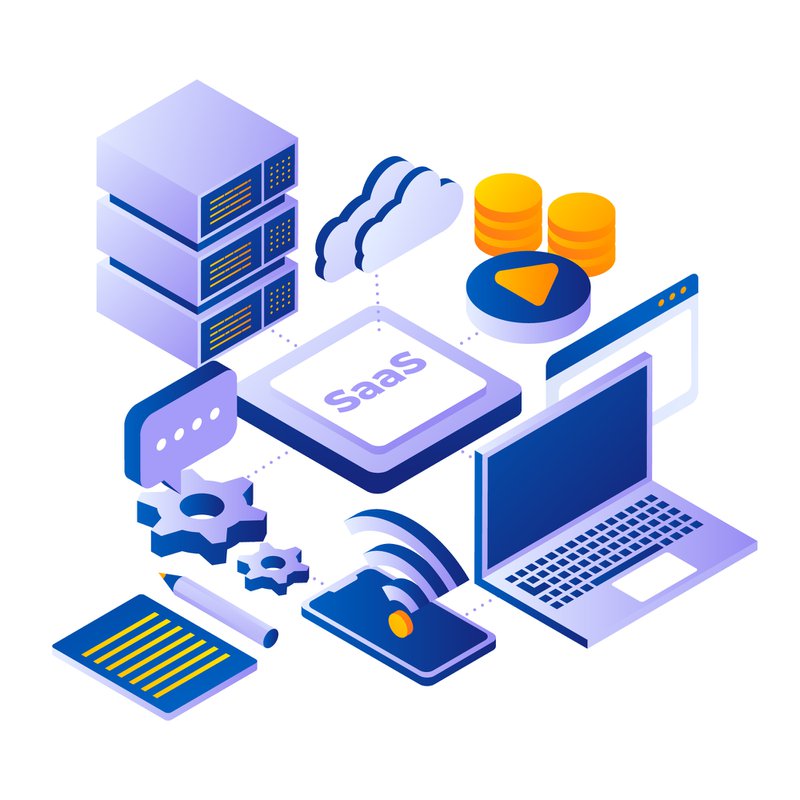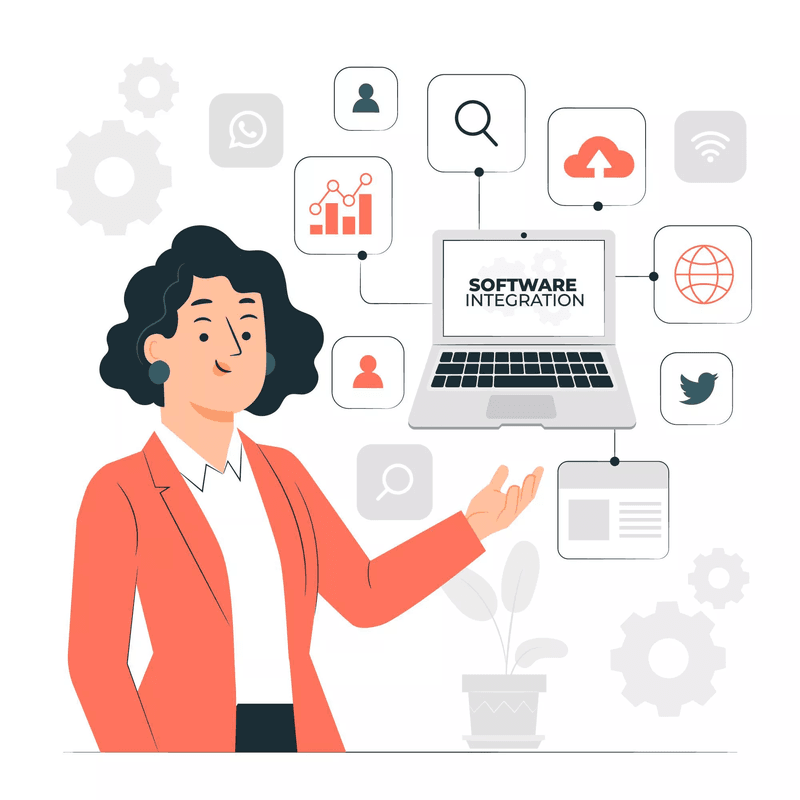
Most of you are pretty familiar with the concept of SaaS, software as a service. Essentially, SaaS is the delivery process that licenses software to users on a continuous agreement. Hence, you can get a monthly/yearly subscription and access the latest version of the full software. So where does Micro-Saas fit in this picture?
Imagine an issue that concerns the minority. For instance, a problem to a specific market/industry may be. Now, you might think such details are overlooked. It is common to believe that no products may solve such intrinsic/detailed matters. But, despite the smaller market size, there might be something that takes care of the devil of details. And this process of product development is often produced, managed, and marketed by one or few people only. Let’s take a look at what is Micro-SaaS.

Micro SaaS focuses on the niche target market and attempts to create products that solve particular needs. The key here is to use minimum resources in the production process. For instance, a sub-section of Zyro’s e-commerce stores is a micro-SaaS for the e-commerce market.
However, before we take a deeper look at what micro SaaS is, it is important to note that in many cases, the business is dependent on another platform. For instance, above, it will depend on Zyro’s e-commerce platform to enable sal s. Despite a few disadvantages, having an established platform to rely on when you begin your Micro SaaS may be an easier w y. We will discuss it in detail later on.
The first micro-SaaS modeled example was seen by the company Storemapper, launched by Tyler Tringas. He took the traditional SaaS business and narrowed it to the point where only one problem was addressed.
In this case, Storemapper had one purpose, providing service for one problem. Their motto was: Assisting retail shoppers to locate the retail stores that carry the products customers want. Without any coding knowledge, users could simply install the app and create the store locator. Therefore, StoreMapper employed analytics and monitored the store traffic, making the service better. Hence, this one aspect laid the foundation of Tyler’s business idea.

To begin with, Micro SaaS businesses have strong growth potent al. And the best part is, anyone can do it. Furthermore, since micro SaaS are location-independent and has a lower risk but standard return margins, you can maintain your business without any bindings.
Hence with a laptop and stable internet connection, you can serve a set of loyal customers online and earn a decent passive income. Therefore, if you are done with the monotony of living the same daily life, micro SaaS may just become your perfect escapade.
Your micro SaaS venture doesn't necessarily require teamwork. Individuals looking to establish a name in the niche market, all by themselves are known as solopreneurs. They build the business from scratch and maintain recurring revenue returns.
However, small teams working together with a minimalistic approach to harness a sustainable target market also demonstrates the scenario of Micro SaaS. Thus, micro SaaS businesses function at lower costs.
As we have already covered in the segment of what micro SaaS is, the fundamentals vary quite a bit for SaaS and Micro SaaS. But, in a nutshell, include:
SaaS and Micro SaaS have their fair share of both worlds in terms of pros and cons. Micro SaaS requires a more intricate, dedicated, and hands-on management syle since you will be entirely responsible. Most importantly, you communicate directly with your customers, learn about their constraints and offer them solutions as soon as possible.
Hence, Micro SaaS owners have higher responsibilities but with sufficient flexibility. But the world of opportunities first requires the fire of an idea.
The rapid growth of Micro SaaS businesses depicts that with the right idea, establishing the platform isn't that problematic business lt. And that is probably one of the most significant advantages that Micro SaaS brings to individuals.

Moreover, the predicted revenue from the dedicated customer is the best part, without undergoing any hassles of the larger SaaS businesses. Lower overhead and maintenance costs also mean you don't have to sweat over resource allocation.
And since it's a niche market space, it gives entrepreneurs freedom like non-other. You offer extensive yet expert solutions, crafting your skills accordingly for your custom rs. Your customers are your only focus, which derives well-driven and rewarding results. The connection you build with them is priceless, and these customers are your ultimate referrals and cheerleaders. Even if you cannot serve them immediately for any reason, a sincere apology goes a long way. Hence, building something on your own, paired with direct and honest feedback, brings an innate satisfaction to the owners
Certain firms acquire Micro SaaS businesses. Hence, resulting in specific sources of value created. Examples of such private equity may include financial and governance engineer ng. These institutions enhance and optimize micro SaaS companies through their operational information
Solopreneurs may often find it challenging to manage distribution, logistics, and the right product for the mar et. A simple yet effective solution is for the owners is to stick to transparency regarding finances and internal records. This transparency enables potential consumers to reach out to the business itself, especially if they find the data satisfactory. The product for micro SaaS businesses is one of a kind, and founders are not aiming for investments, there would be little risk of competition to introduce the same product.
In most cases, freelancers opt for micro SaaS ventures because they are highly familiar with the problems that customers' problems. And once they know what micro SaaS is, they are empowered to take matters into their own hands.
But freelancers or even professionals may choose to rely on external platforms to start with. So building a micro SaaS that helps make customers' journey on other e-commerce or any other website easier means faster and better customer acquisition. To clarify, suppose your Micro SaaS is a plugin of Zyro. Therefore, Zyro’s customers are already your potential customers.
Nonetheless, if you decide to create your micro SaaS independently, your customer acquisition will start with those who have already taken your services. Undoubtedly, building a community is the most critical aspect of micro SaaS businesses. With an external platform, you already have a community, which serves as a great advantage.
But it is also important to note whatever mechanism you choose, make sure it suits your business best.
Before we understand the drawbacks of Micro SaaS as a business, let us first dissect the two segments. The first part lists the disadvantages if you choose a parent platform to set up your niche market.
Your micro SaaS is supported and accessible to your consumers only on the parent platform. This parent platform can be either another SaaS company or a different market. If, for any reason, the larger business crashes, your micro SaaS will automatically bid farewell. Therefore, the best way to avoid such instances is by choosing a platform that won't close down overnight before you invest in it.
This is something that you will have to abide by. No matter which company or enterprise you integrate with, they will have a set of terms and conditions. As a part of the agreement, some things you might have independently sought after are now restricted.
Instead of having a smoother and faster customer acquisition with the already established business, this may limit your customer base access. You will always have the people using the parent company’s services as your specific list of potential customers. Hence, limiting the exposure of your services.
Similar to the previous point, it is unlikely of any parent company to let you share their platform without a charge. This charge may be 20-30 percent of your total revenues over a certain period. And therefore, this adds resource exhaustion to your finances which otherwise could have been avoided. However, on the flip-side, if your product is the best service out there, consumers will purchase it anyway. Thus, even if you spend a little more on sharing revenues, the overall backup of the parent platform is worth considering.
For the next part, the disadvantages of Micro SaaS are not limited to the other platform. Instead, they address the overall limitations of this phenomenon.
As you might predict, the work alone of idea generation, planning, managing, and implementing can be highly exhausting. And this exhaustion is further fuelled if you do not have a support system to pull you through during any crisis. More importantly, you always have to keep an eye out and measure results. The entire process demands extreme dedication, time, and continuous attention for you to keep improving. As Tyler suggested, you will have to fail miserably before launching successfully.
Since Micro SaaS is still a new industry, it comes with limited expansion opportunities. And as an entrepreneur, this may at some point become demotivating. Therefore, before you step in, understand that things may not always go according to your original plans.
The kindle of your flame is in the idea. And coming up with the right idea that is viable isn't the easiest thing. Hence, a simple process that Tyler suggested was the Meat Grinder Method. It's a simple method that helps you identify if your idea is good for Micro SaaS. The method suggests that your idea be continuously tested by putting it through the meat grinder. Then, if you get stuck, find the solution and accordingly design your final business outline.

Some of these questions may include:
Once you have the truthful answer to these questions, move on to the next aspect.

Once you have developed the idea, the rest follows. Research the target market understand what differentiation you bring to them.
Start with a minimum viable product, set a single price, and work to see if the price works. Remember, execution is everything. And the MVP is just your initiation. You will add better features with time. First, set solid deadlines and work hard to meet them. Your Micro SaaS success depends on how well you understand the results yourself, so test the MVP. Subsequently, identify areas of improvement.

Once your MVP is ready, set out for your target consumers.
Identify the target customers’ preferences be with them. Build a relationship with them by being honest and transparent. Ask for feedback and improve accordingly.
In terms of pricing, remember that increasing prices may disturb your customer base. So choose carefully: retention or costs. All in all, keep your customers happy, and your micro SaaS will turn out better than your exhaustion.
Micro SaaS is an excellent gateway with a solid call to establish your mark.
But if you are struggling to get started, a simple way out is collaboration. Understanding micro SaaS helps you derive a finer idea of what you want to do. Thus, you now have a more precise direction. The scope of collaboration also reduces entire dependency on a secondary platform rather than empowers your micro SaaS.
One such platform for you to take your first step with is, PolyUno. It is a full-stack agency specializing in software development, web development, UI/UX design, content creation, etc. PolyUno has been helping businesses transform their digital journeys and have experiences with names like Microsoft. If not partnership, they can help your idea generation process as well!
Then, what are you waiting for? Give your dreams the license to fly high! Book A Call today!